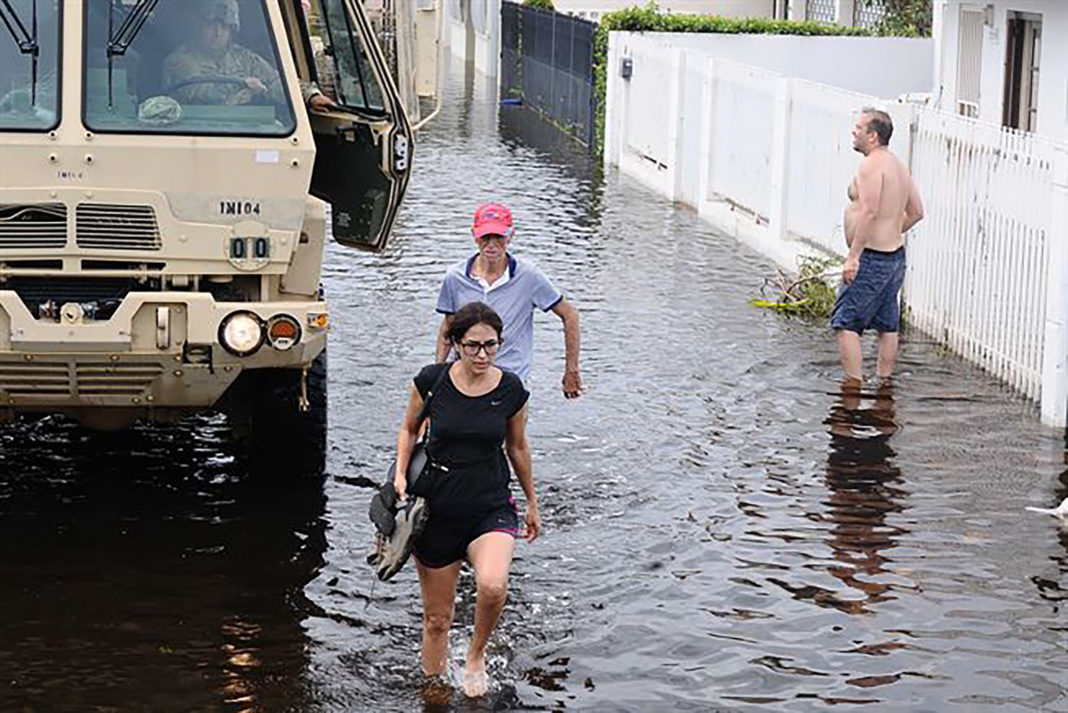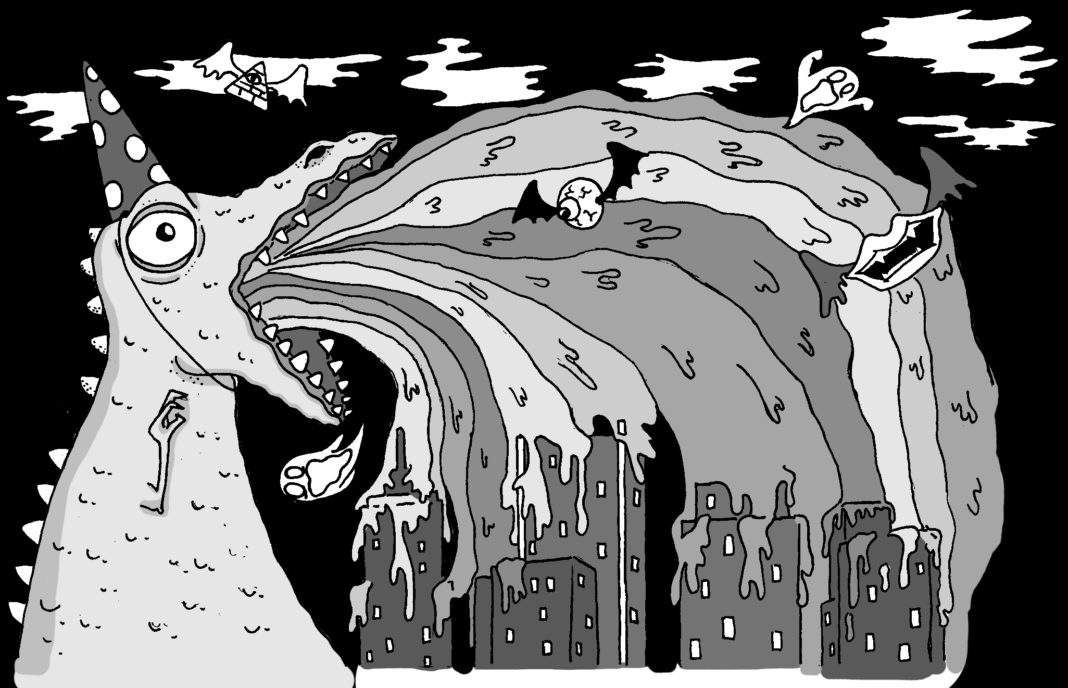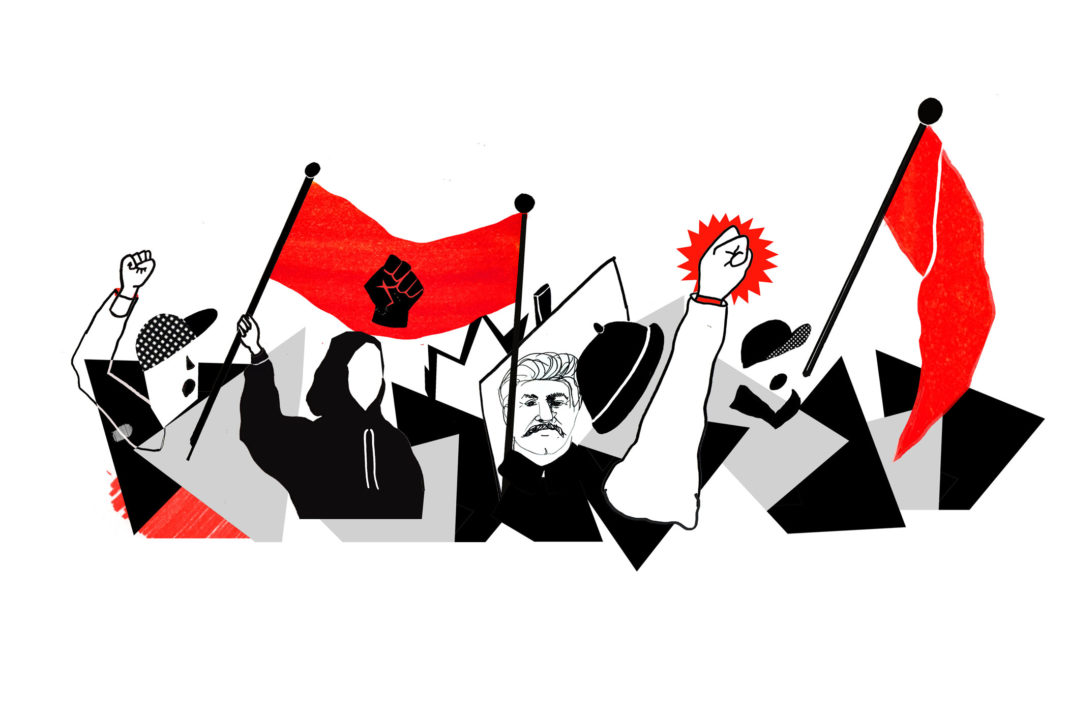Puerto Rico, often ignored by the United States except as a tourist destination, is making news for the devastation caused by Hurricane Maria. The majority of the archipelago is without power, and according to multiple officials, it’s predicted to take up to six months to repair the already obliterated power grid.
Adding insult to injury, President Trump weighed in on Sept. 30 with a series of critical Twitter statements directed toward Mayor Carmen Yulin Cruz of San Juan, Puerto Rico’s capital. Cruz has made appeals to the world at large for increased assistance during the territory’s nearly insurmountable disaster. Rather than focusing his efforts on Puerto Rico and the disaster befalling the people, President Trump used his time to express anger at Cruz on social media.
While the U.S. has made efforts to speed Puerto Rico’s post-hurricane recovery—sending air and sea shipments of food, fuel, medicine and military personnel—the damage to ports, roads and infrastructure has been so severe that many residential pockets are isolated, out of reach by present means. The overwhelming extent of the damage is the direct result of decades of neglect by Puerto Rico’s parental U.S. government.
The economic status in Puerto Rico, partly due to U.S. control over the island, is dire. The average annual income is $15,000—lower than the poorest U.S. state, Mississippi. Despite that, the main island entertains airplane loads of the rich and famous, with travel magazines enticing vacationers to come visit the “Island of the Stars.” If so many people with high incomes are visiting, the workers should ideally see some benefit, such as higher incomes.
Puerto Ricans are U.S. citizens who are only allowed some of the rights and responsibilities that citizens of U.S. states possess. They can fight and die in U.S. wars, but they cannot elect a president or send senators and representatives to Washington D.C. with the power to vote in Congress or the House. In elections outside of the island, they can express their opinion on candidates or bills, but they cannot cast a vote for that opinion. It could be said that Puerto Ricans are treated as second-class citizens.
Originally a Spanish colony, Puerto Rico was invaded in 1898 by the U.S. during the Spanish-American war and established as an unincorporated territory , also known as a commonwealth. Puerto Rico suffers from an unstable economy, outdated infrastructure, and restrictions on participating in national issues. It is not technically a colony anymore, but Puerto Rico is treated only a step above one.
The Puerto Rican economy was impacted early on when the U.S. used its power to change the island’s agricultural economy from a successful coffee-based industry to sugar-based. This transition was aided by the impact of Hurricane San Ciriaco, which hit Puerto Rico in 1899, killing 3,000 people and devastating coffee plantations.
Sugar plantations hold up better in violent storms, and the U.S. pushed for them to be the new economic impetus, giving more power to the planters—such as the planters in charge of food distribution. The economic status of Puerto Rico today is tied to the negative effects of its colonial-era relationship with the U.S. Today, Puerto Rico’s relationship with the U.S. has not advanced much past that era, since its citizens do not get the same support and rights that the majority of mainland U.S. citizens do.
With the economy of the island already in such a precarious position, Hurricane Maria’s damage is made more severe. The U.S. can show it cares about Puerto Rico by giving its citizens the same respect and rights that it does to mainland states—perhaps even statehood. Although voter turnout was only 23 percent, 97 percent of participants voted last June for statehood, which would give them the federal support granted to the rest of the nation.
However, even without statehood, Puerto Ricans are U.S. citizens. President Trump claimed via tweet, “They want everything to be done for them when it should be a community effort,” but the U.S. has never come close to doing everything for Puerto Rico. It is the responsibility of the U.S. to help Puerto Rico during this disaster, as much as it was our responsibility to help Florida and Texas, especially considering that U.S. influence has played a role in the archipelago’s vulnerable economic structure.
A hurricane is not the time to capitalize on or reinforce colonial-type neglect, such as in 1899, but a chance to show that America truly wants to move forward into better relations with Puerto Rico. The question is, will we?






